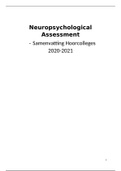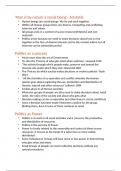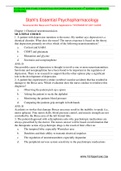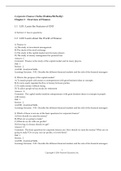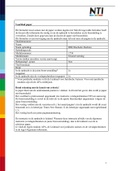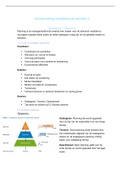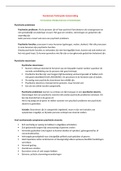College aantekeningen
Neuropsychological Assessment (PSMNV-2) Hoorcollege aantekeningen (HC1 t/m HC7)
Hoorcollege aantekeningen van het vak Neuropsychological Assessment (PSMNV-2) voor de Master Psychologie (RuG). Aantekeningen zijn grotendeels in het Engels geschreven. HC1: Introduction HC 2: Interview and Observation HC3: Hypotheses HC4: Interpretation and Report HC5: Symptom validity and distu...
[Meer zien]
